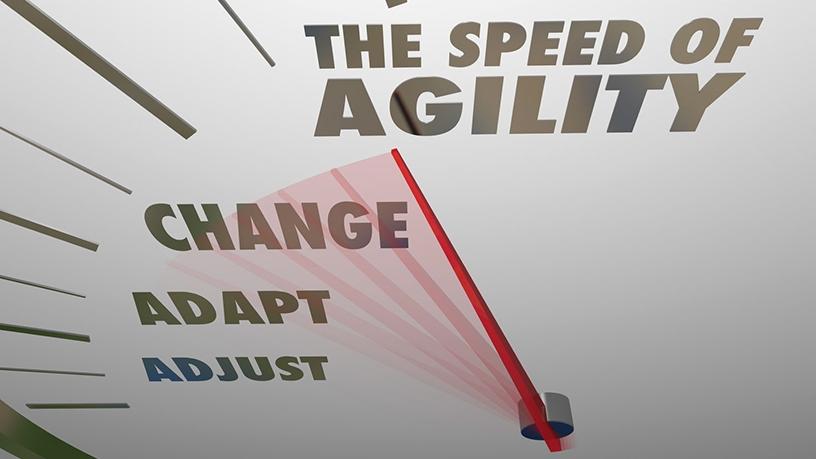It's an Agile world: long live Waterfall

That comment, from the floor during the first Johannesburg PMO Forum event of the year held in Bryanston last week, elicited appreciative laughter and agreement from the dozens of PMO executives and leaders, as well as from the main speaker, Dimension Data's Group PMO, Dr Shaun Kirchmann.
The PMO Forum is an interest group that falls under the umbrella of Project Management South Africa (PMSA) and provides an opportunity for PMO executives to network with peers across industries, and share knowledge and experience.
Kirchmann had just completed a presentation on the global IT company's Agile transformation journey which, he acknowledged, had not been easy, but was starting to deliver tangible value to the organisation.
According to Kirchmann, one of the key reasons Dimension Data had decided to adopt Agile was because "everything was moving too slowly within the organisation. It was taking too long to get products to market - by the time products ready to be launched, the market had moved on".
The company had also identified a need to maximise value and increase efficiency of delivery; to provide end-to-end visibility and traceability into its work across portfolios to ensure it is always working on the right things; and to transform the itself to enable it to be able to respond to the market faster.
"We recognised that we had to do things differently - we had to be disruptive and reinvent the way we do business," Kirchmann said, illustrating this by quoting Oren Harari, business professor at the University of San Francisco and author of several management books: "The electric light did not come from the continuous improvement of candles".
Agile fits the "disruptive" brief but, as Kirchmann pointed out, Agile comes in different forms. Dimension Data had adopted US Agile expert, Antonia M Cusumano's definition of Agile as "the ability to quickly adapt to or even anticipate and lead change. Agility in the broadest form affects strategic thinking, operations, technology innovation and the ability to innovate in products, processes and business models". As such, the company had adopted the Agile philosophy throughout, from its highest strategic levels to its daily operations.
The company's Global PMO was the lead on the introduction of Agile, based on SAFe principles, throughout the organisation, and according to Kirchmann, some valuable lessons had been learned:
- Moving to Agile requires a significant investment. When starting on this journey, be aware that there will be all kinds of associated costs from new tools to training and upskilling.
- Scale, do not go wholesale. Start small with clearly defined and tangible value to be realised at the end of each predefined "stop" along the journey.
- Obtain buy-in from all affected people - particularly from executives, but also from those at operational level.
- Educate executives and manage their expectations. They need to understand that executive reporting does not exist in Agile; but they also have to understand where the value will be realised.
- Invest time, energy and management into change management - and expectation management. Ensure there is a comprehensive change management plan, and a dedicated team to implement it.
- Develop your process and discipline first - and then get the tools bearing in mind that no tool will be a perfect fit
- Consider geographic spread of people -as far as possible try and co-locate teams.
- Communicate, communicate, communicate - from top down and bottom up - to every person affected by the change.


Comments
Post a Comment